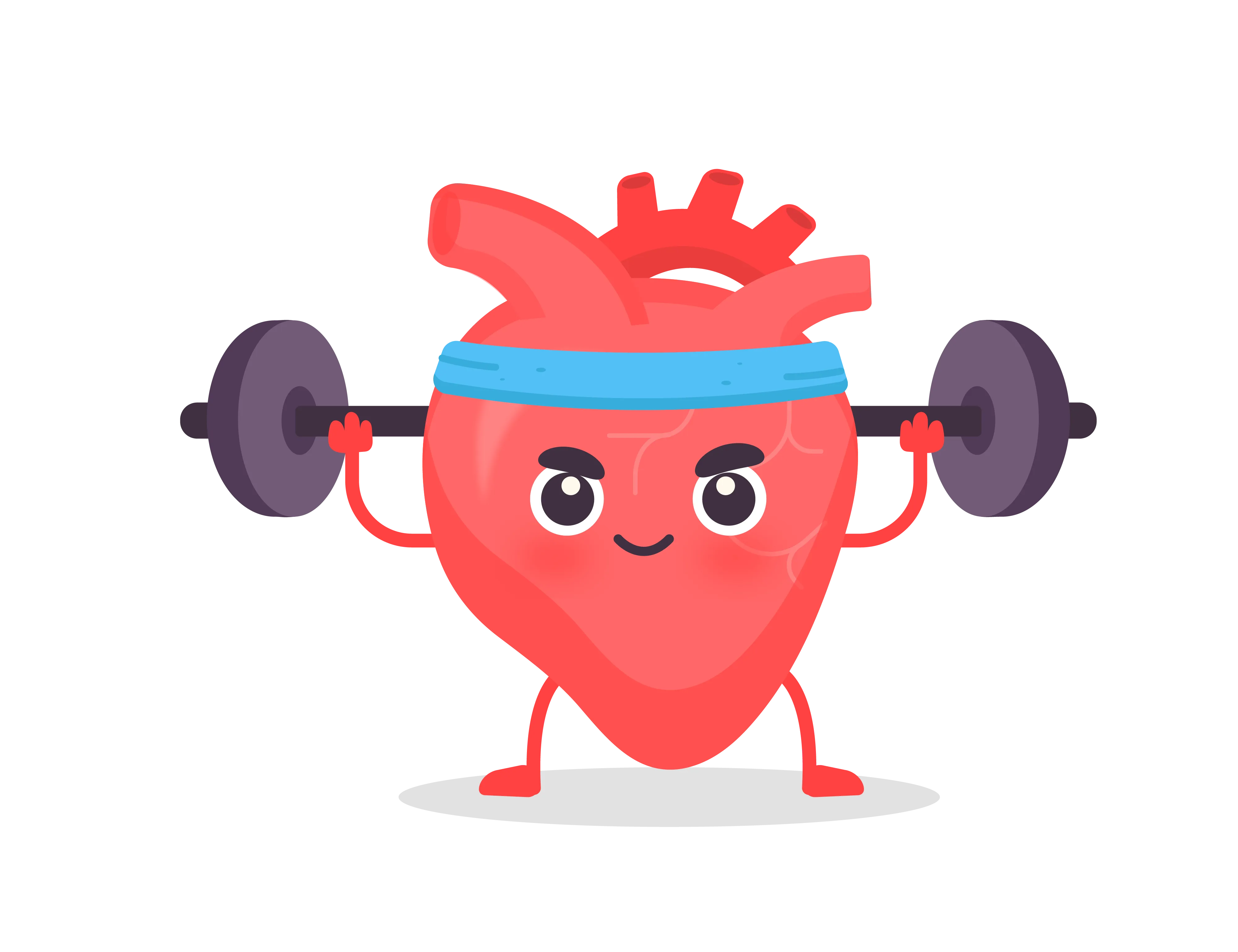General Physician | 7 min read
6 Healthy Ways to Lower your Cholesterol Level
Medically reviewed by
Table of Content
Key Takeaways
- Maintaining normal cholesterol levels is essential for a healthy heart
- By eliminating harmful LDL cholesterol from your blood, good cholesterol, or HDL, protects your heart
- Controlling your weight is essential for keeping your blood cholesterol healthy
Do you want to lower your cholesterol level? For a healthy heart, you must maintain healthy cholesterol levels. A high cholesterol level can cause strokes, heart attacks, and other heart ailments. Age is one of the significant risk factors for increasing cholesterol levels in your blood, as per the NIH [1]. Therefore, it becomes important for both women and men to keep a close watch on their cholesterol levels from the early age of 20 years [2].
However, you must be wondering what is good cholesterol, which is often talked about by experts? It is important to know that your body contains both good and bad cholesterol. Cholesterol is important to your body for synthesizing certain hormones and producing vitamin D. Good cholesterol or HDL protects your heart by removing bad cholesterol or LDL from your blood. This prevents LDL deposits in arteries, thereby preventing coronary ailments.
Regular checkups, an active lifestyle, and a healthy diet are some of the essential factors that keep your cholesterol level under control.
How to Lower Cholesterol with Diet
For simple tips on how to lower cholesterol levels and protect your heart, read on.
Additional read: All You Need To Know About the Two Cholesterol Types
Opt for healthier fats
Limit both total and saturated fat intake. Less than 7% of your daily calories should be saturated fat, and no more than 25 to 35 per cent of your calories should be from dietary fats. Because it increases LDL (bad cholesterol) levels more than any other dietary component, saturated fat is considered bad fat. Some meats, dairy products, baked goods, chocolate, deep-fried meals, and processed foods include it.
Another unhealthy fat is trans fat, which can drop HDL (good cholesterol) and elevate LDL. The majority of trans fats are found in foods like stick margarine, crackers, and french fries that are prepared with hydrogenated oils and fats. Instead, try healthy fats like lean meat and nuts and unsaturated oils like canola, olive, and safflower instead of these toxic fats.
Consume a lot of soluble fiber
Your digestive tract is stopped from absorbing cholesterol by soluble fiber-rich meals. These foods consist of:
- Cereals made with whole grains, such as oatmeal and oat bran
- Fruits, including apples, bananas, oranges, pears, and prunes
- Legumes, including lima beans, kidney beans, lentils, chickpeas, black-eyed peas, and lentil soup
Frequently consume fruits and vegetables
Consuming a lot of fruits and vegetables might enhance your intake of key cholesterol-lowering substances. These elements, often known as plant stanols or sterols, function similarly to soluble fiber.
Omega-3-rich fish should be consumed
Although they could assist in increasing your HDL level, these acids won't reduce your LDL level. They could help lessen your danger of heart attack and safeguard your heart against swelling and blood clots. Fish such as salmon, tuna (fresh or tinned), and mackerel are excellent sources of omega-3 fatty acids. Try to consume these fish twice weekly.
Limit your salt intake
You should make an effort to keep your daily sodium intake to no more than 2,300 milligrams (or one1 teaspoon) of salt. That includes any salt you consume, whether it was added during preparation, consumed at the table, or was already present in food items.
Limiting salt can reduce your risk of heart disease by helping to lower your blood pressure, even while it won't lower your cholesterol. So, choose low-salt and "no added salt" dishes and spices at the table or in the kitchen to lower your sodium intake.
Limit your alcohol consumption
Due to the additional calories that alcohol contains, weight gain may result. A higher LDL and lower HDL might result from being overweight. Alcohol addiction can elevate blood pressure and lipid levels, which can both increase your risk of heart disease. One drink is considered to be one glass of wine, beer, or a small amount of strong liquor, and it is advised that:
- Men shouldn't consume more than two alcoholic beverages every day
- Women should limit themselves to one drink each day

Check your cholesterol level periodically
It is important to monitor your cholesterol levels regularly. Cholesterol levels are measured in mg/dL units [3]. The normal cholesterol levels of an individual should be below 200 mg/dL. Ensure your good cholesterol levels or HDL cholesterol levels exceed 60 mg/dL to keep your heart healthy. One important point you need to note here is that your bad cholesterol level or LDL has to stay well within limits below 100 mg/dL. An abnormal increase in this can cause cholesterol plaque deposition in your arteries that can harm your heart. To know your cholesterol levels, do a blood test called a lipoprotein profile. This test will assess your total cholesterol levels along with HDL, LDL, and triglycerides.
Exercise regularly and lead an active lifestyle
Regular exercising is good for your heart and can protect you from heart diseases by increasing blood circulation. This raises your oxygen levels and keeps your cholesterol levels well under control. Maintaining an active lifestyle can lower your triglyceride and blood pressure levels too. Go for a 30-minute walk daily to increase HDL and lower LDL cholesterol levels in your blood.
Maintain a healthy cholesterol level by eating right
To keep your cholesterol levels at bay, learn to differentiate between unhealthy and healthy fats. Choose foods with healthy unsaturated fats and limit the intake of foods high in unhealthy saturated fats to improve your cholesterol numbers. Healthy fats reduce the risk of heart diseases and stroke and include nuts, seeds, fish, and oils like sunflower, canola, or olive. Therefore, it is essential to check nutrition facts on food labels and choose heart-healthy options.

Consume beans, vegetables, and fruits in adequate amounts
Fill your plate with vegetables and fruits as these are rich in vitamins and minerals. They are also good sources of fiber that can keep you full for a long period to help you control your body weight. Including them in your meals can improve your HDL levels. If you are looking to lower your LDL levels, don’t forget about legumes. Beans are excellent sources of soluble fiber, which reduces bad cholesterol levels. Adequate amounts of legumes, fruits, and vegetables are essential to maintain a healthy heart.
Minimize stress to lower your cholesterol level
Stress is one of the key risk factors for heart diseases. If you worry or stress too much, your LDL or bad cholesterol levels may increase. This can affect your blood pressure and lead to coronary artery diseases. To keep a check on this, start by identifying your stress triggers and work towards reducing them. Follow tried-and-tested techniques like yoga, deep breathing exercises, and meditation to minimize your stress levels.
Control your cholesterol level by maintaining the ideal body weight
Weight management is a vital step towards maintaining healthy cholesterol levels in your body. Therefore, it is important to limit your meal portions to keep your weight in control. Try minimizing carbohydrate intake and increase portions of proteins and fiber in your diet to keep your weight in check. Having 6 smaller meals instead of 3 large ones and keeping yourself well hydrated are other ways to manage your body weight.
Additional read: Cholesterol Diet Plan: Best Foods and Diet to Lower CholesterolMaking positive changes by shifting towards a healthier lifestyle can help in lowering your cholesterol levels. If your total cholesterol level exceeds 240 mg/dL, there is a risk of developing heart disease. So, make it a point to regularly check your levels and meet a doctor for the right advice. Book blood tests within minutes on Bajaj Finserv Health and teleconsult with a general physician or endocrinologist to ensure you’re on the right track.
References
- https://www.pennmedicine.org/updates/blogs/heart-and-vascular-blog/2015/february/protecting-your-heart-what-is-a-healthy-cholesterol-level-for-you
- https://www.heart.org/en/health-topics/cholesterol/how-to-get-your-cholesterol-tested
- https://my.clevelandclinic.org/health/articles/11920-cholesterol-numbers-what-do-they-mean
Disclaimer
Please note that this article is solely meant for informational purposes and Bajaj Finserv Health Limited (“BFHL”) does not shoulder any responsibility of the views/advice/information expressed/given by the writer/reviewer/originator. This article should not be considered as a substitute for any medical advice, diagnosis or treatment. Always consult with your trusted physician/qualified healthcare professional to evaluate your medical condition. The above article has been reviewed by a qualified doctor and BFHL is not responsible for any damages for any information or services provided by any third party.





